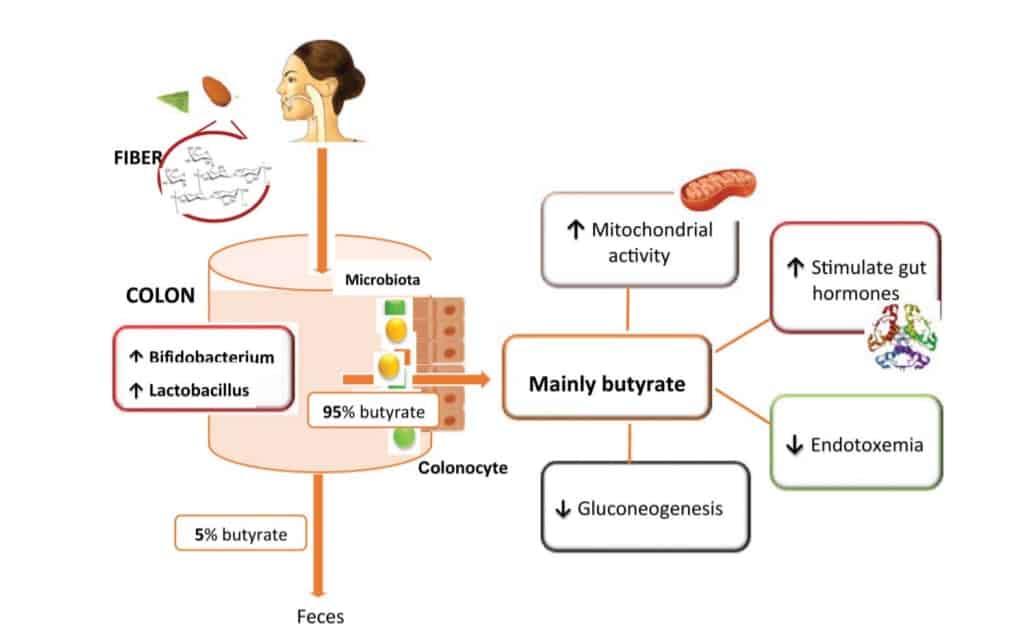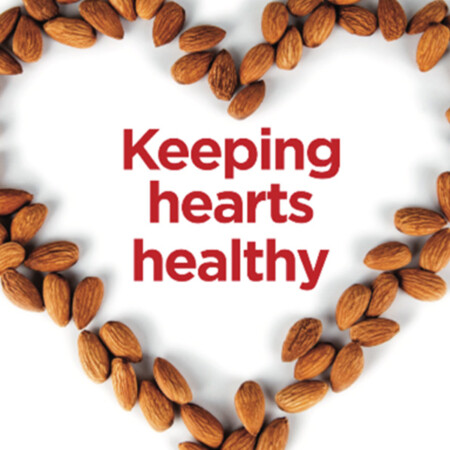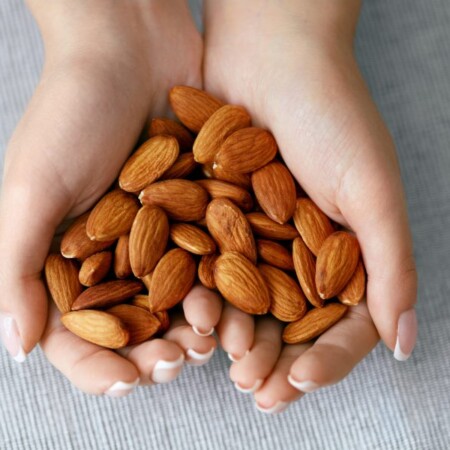Almonds and gut microbiota
The health benefits of diets rich in nuts are widely reported and have mostly been attributed to the fatty acid profiles, protein content, vitamins, minerals, fibre and antioxidant components of nuts.

Beneficial health effects include reducing cholesterol and mortality from heart disease and cancer, weight management and reducing inflammation 1-5.
More recently, there is emerging evidence to suggest that nuts and nut skins, including almonds, beneficially effect the composition and function of the gastrointestinal microbiota 6-11.
The microbiota are different microorganisms living in the gastrointestinal tract, and while their function is not yet completely understood, we are learning that the non-bio-accessible (non-digestible) components of nuts (polymerized polyphenols and polysaccharides) act as substrates or fuel for the gut microbiota.
These substrates contribute to the health of the gut through an increase in the production of good compounds called ‘short chain fatty acids’ (SCFA)6,8. These compounds provide numerous benefits to the human body, including:
- Reduced inflammation
- Improved absorption of nutrients from food
- Improved immunity
- Regulation of mood
- Protection against cancers in the bowel
- Assistance with weight regulation7,8,9
The specific gut health benefits of almonds
1. Prebiotic effect
Almonds are a tree nut that contain high levels of dietary fibre (10% of the recommended daily 30mg serve) 12,13.

A component of this fibre is prebiotic fibre (soluble fibre), which is metabolised or fermented by gut microbiota. Although more research needs to be done, a number of interventions have described the prebiotic properties of nuts in humans 7-11.
In one study, almonds or almond skins, when supplied for ~6 weeks, were found to fulfil the criteria as a prebiotic by promoting9:
- Resistance to gastric acidity, hydrolysis by mammalian enzymes & GI absorption
- Fermentation by intestinal bacteria
- Selective stimulation of the growth & activity of those intestinal bacteria that contribute to health and wellbeing
Almond skins are also particularly rich in polyphenols, including both flavonoids and non-flavonoids, which may help to explain this prebiotic effect, but the mechanism of action is not yet clear.
2. Increased abundance of beneficial bacteria
Prebiotic almond polysaccharide metabolism in the human body has been shown to increase the abundance of Bifidobacterium and Lactobacillus when administered in sufficient amount (56g) for at least 8 weeks.6

This effect has been reinforced in a recent study which looked at the health effects of walnut consumption in healthy adults. It was found that walnuts increased the relative abundance of Firmicute species in Clostridium clusters, including Faecalibacterium and Roseburia, and reduced proinflammatory secondary bile acids and LDL cholesterol 11.
By Nicole Dynan
@the.guthealthdietitian
www.theguthealthdietitian.com
Glossary:
Polyphenols – act as antioxidants. They protect cells and body chemicals against damage caused by free radicals, reactive atoms that contribute to tissue damage in the body.
https://www.medicinenet.com/script/main/art.asp?articlekey=16619
Polymerized – a chemical reaction in which two or more small molecules combine to form larger molecules that contain repeating structural units of the original molecules (Merriam Webster Dictionary)


